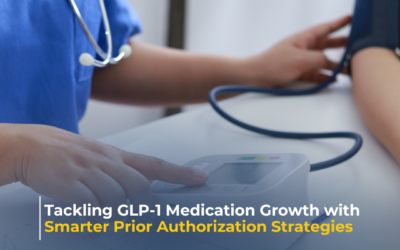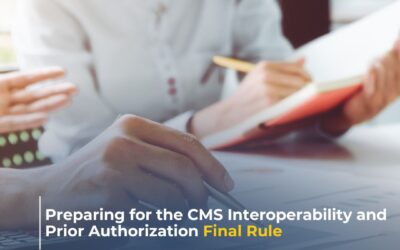The healthcare industry is facing unprecedented challenges in streamlining prior authorization (PA) processes effectively. According to a report by the Arthritis Foundation, the average wait time for medical procedure PAs ranges from a few days to several weeks, causing significant delays in patient care. Furthermore, the American Medical Association (AMA) found that 93% of physicians experience care delays linked to prior authorization requirements, with 89% reporting that these processes contribute to burnout.
Key Takeaways
- Emerging technologies like AI and automation are reshaping PA processes.
- Interoperability and single-platform approaches are crucial for seamless data exchange.
- Allocating resources to support technology advancements and optimizing UM platform readiness is vital.
- Responsible integration of AI solutions is essential for sustainable, compliant, and effective operations.
Current Industry Challenges
The complexity of PA workflows is further intensified by the sheer volume of requests managed weekly. On average, physicians handle 39 prior authorizations per week, with nearly half employing dedicated staff solely for managing these administrative tasks. This not only escalates operational costs but also diverts critical resources away from patient care.
Another key challenge is the lack of transparency in clinical criteria guidelines. An estimated 61–65% of providers report difficulties in determining whether a drug or procedure requires prior authorization. This ambiguity often results in rework, miscommunication, and provider burnout.
The urgency to evolve platforms and integrate automation and artificial intelligence (AI) is becoming increasingly apparent. Based on our market research and conversations with health plans, it is clear that there is a growing demand for unified software solutions capable of administering both pharmacy and medical benefit prior authorizations. This shift towards a single-platform approach not only simplifies administrative burdens but also enhances operational efficiency.
Current Trends in Prior Authorization
In response to these industry challenges, key trends are emerging that aim to reshape the prior authorization landscape. These trends include platform modernization, legislative and regulatory reforms, and an increased focus on interoperability and standardization.
- Platform Modernization and AI Adoption: Healthcare organizations are increasingly adopting advanced technologies such as automation, AI, and machine learning to streamline PA workflows. Technologies like Natural Language Processing and clinical information data extraction are optimizing clinical decision-making and accelerating case processing times.
- Legislative and Regulatory Reforms: Government-led initiatives like the CMS-0057 rule, the Inflation Reduction Act, and state-specific legislation are driving regulatory changes that demand more efficient PA processing and enhanced data exchange standards.
- Interoperability and Standardization Efforts: The Trusted Exchange Framework and Common Agreement (TEFCA) aims to create universal interoperability across healthcare networks. This initiative, alongside the Qualified Health Information Exchanges (QHINs) and implementation of FHIR standards, enables real-time data exchange and reduces administrative bottlenecks.
These evolving trends indicate a collective shift towards transparency, efficiency, and streamlined data flow in the PA process.
The Future of Prior Authorization
The future of prior authorization is poised for transformative change driven by technological advancements and regulatory momentum. Interoperability initiatives like TEFCA, QHINs, and broader adoption of FHIR standards are expected to create a more interconnected healthcare ecosystem, where data flows efficiently across platforms, reducing friction and enhancing decision-making.
Automation and artificial intelligence will continue to reshape the landscape, with predictive analytics, machine learning, and real-time processing streamlining PA workflows. These technologies will not only improve efficiency but also enhance clinical decision-making, allowing providers to allocate more time to patient care.
Agadia remains committed to leading this transformation by continuously evolving its PAHub platform to meet emerging regulatory standards and leverage cutting-edge technology. By prioritizing innovation, interoperability, and transparency, Agadia is well-positioned to support healthcare organizations in overcoming current industry challenges and preparing for the next era of utilization management.
As the industry advances, Agadia’s focus on automation, seamless data integration, and compliance ensures that it remains at the forefront of prior authorization innovation, enabling better patient care and more efficient healthcare operations.
Schedule a demo to see how Agadia is utilizing automation to streamline PAs.
Sources:
https://www.ama-assn.org/system/files/prior-authorization-survey.pdf
https://www.cnn.com/2024/11/07/health/evi-care-insurance-company-denials-propublica/index.html










